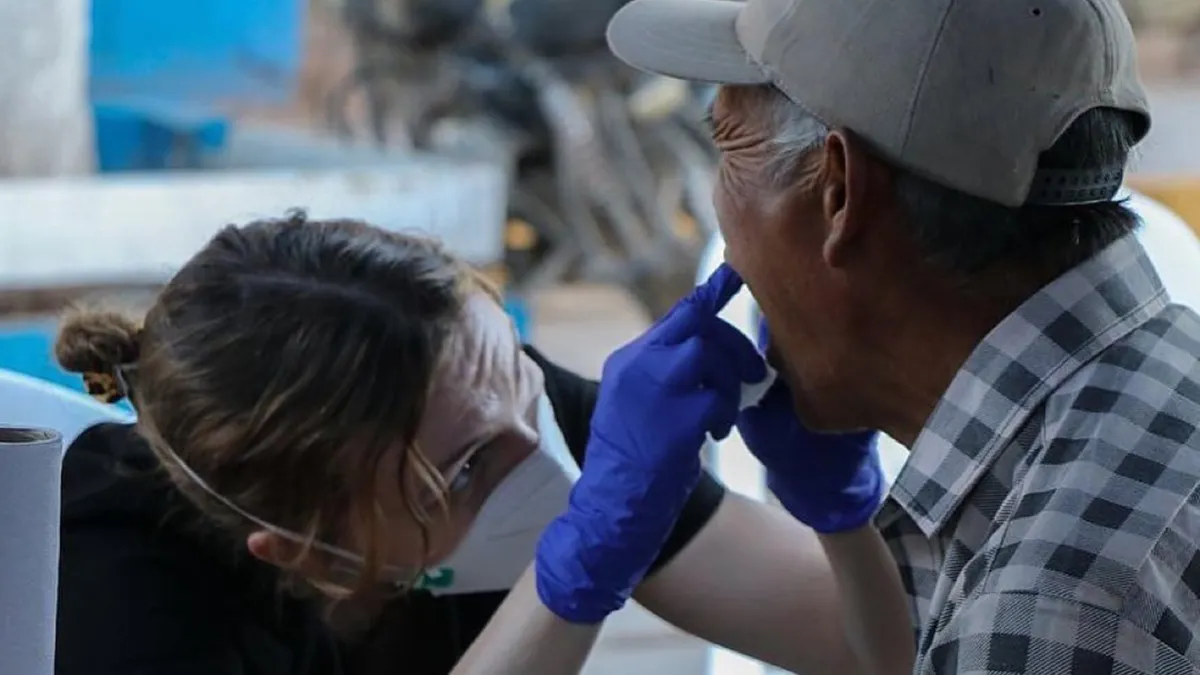Last Updated on September 30, 2024 by Laura Turner
Recently, I had the privilege of leading an impactful volunteer medical trip to Cusco, Peru, alongside ten students from TouroCOM. During our trip, students had various medical responsibilities such as monitoring blood pressure, assessing height, weight, BMI, and applying oral fluoride treatments. Students also had the opportunity to use the Osteopathic Manipulative Techniques that they’ve learned as a treatment for certain patients.
We worked closely under the supervision of a local doctor, learning about diagnosis and treatment modalities. The experience was beneficial in many ways. It allowed us to collaborate closely with local physicians, bridging the gap between our academic knowledge and clinical applications, while learning about cultural differences in the approach to medicine.
Providing Care in Peru
We began our four-day volunteering journey in a town called Calca, located in southern Peru. On our first day, we treated 86 patients, managing a variety of cases from appendicitis and cholecystitis to Klumpke’s paralysis, each offering unique challenges and enriching our learning. On the second day we went to Huancaro, where we treated about 70 patients in a multi-purpose community-built space used for various gatherings. We treated conditions like strep/pharyngitis, UTIs, and musculoskeletal pain related to their labor-intensive jobs. On our third day, we went to Limatambo, where we provided medical care to over 200 individuals, addressing more severe cases such as a traumatic head injury, and chronic respiratory issues which were evident from symptoms like clubbed fingers. We concluded our mission in San Jerónimo, treating approximately 40 patients and gaining additional insights into the local health challenges.
Explore More Global Health Insights
Dive deeper into the world of global health and how you can serve the global community.
The Power of Body Language, Empathy, and Human Connection
Many of us were not proficient in Spanish which created both a challenge and an opportunity to learn. We worked towards overcoming the language barrier, by practicing with each other and with patients to improve our Spanish. Despite our limited vocabulary, we discovered the profound power of body language, empathy, and genuine human connection. We were soon able to build more trusting relationships and friendships with only a few sentences.
One of the challenges we faced during our trip was the limitations of the treatment we could provide, in addition to the language barrier. Without access to blood work and diagnostic imaging, our ability to diagnose and treat certain conditions was restricted. Despite these limitations, we did our best to offer meaningful care and support to the patients, making the most of the resources at our disposal. This experience showed us the desperate need to return with basic medical equipment and supplies to enable more comprehensive care.
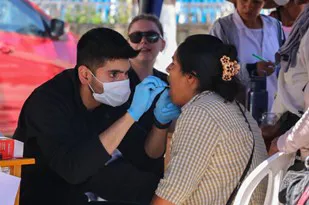
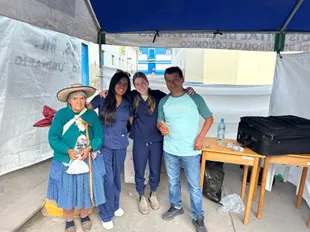
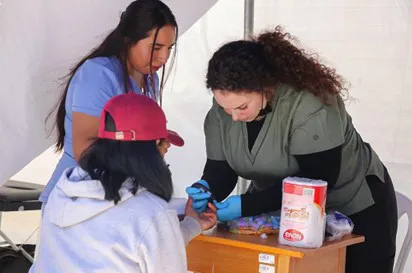
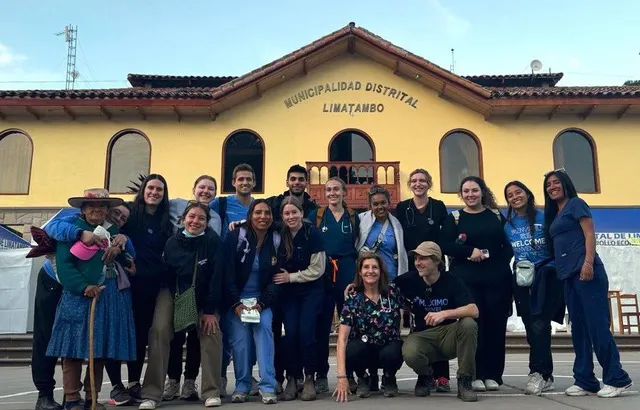
There is a global healthcare crisis occurring that needs the attention of healthcare professionals. More emphasis needs to be placed on volunteerism and public health with missions such as ours, introducing students to these critical issues of healthcare. Offering opportunities will have a profound impact on our students to be more aware and open-minded about the diverse communities we aim to serve.
We were overwhelmed emotionally by the incredible spirit of the indigenous people of Cusco. Despite facing numerous challenges, we felt a palpable sense of community—they cared for each other with a deep sense of love and mutual respect, often extending their warmth to us, despite us being strangers. This interaction taught us invaluable lessons about love, community, and compassion, transcending the usual patient-doctor dynamic.
This experience was more than a clinical volunteering trip; it was a life lesson in humility and humanity. Despite the primary aim of treating illnesses, we left with a deeper understanding of how health is influenced by community and culture. I hope that medical volunteering trips like this will inspire and motivate future healthcare professionals to explore new cultures and religions, and to use their education, skills, and commitment to the humanitarian mandate of healing all people with respect, empathy, and dignity.
